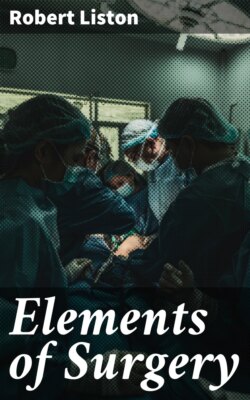Читать книгу Elements of Surgery - Robert Liston - Страница 16
На сайте Литреса книга снята с продажи.
NEURALGIC AFFECTIONS OF JOINTS.
ОглавлениеTable of Contents
The joints, like other parts of the body, are very often the seat of painful affections, without organic disease existing. These neuralgic affections are often connected with, or followed by, hysterical symptoms. They frequently also depend upon derangement of the digestive organs,—upon the lodgement of irritating matters, sordes, or worms in the intestinal tube; and when we reflect upon the extent of the lining membrane, the expansion of nervous filaments, and upon the sympathy which they hold with the whole system, we cannot be astonished at the circumstance. Many cases of supposed hip-disease in children, with the symptoms and some of the signs of it, have come under my notice, which have yielded at once to the expulsion of offending matters or worms. Some affections of joints seem to depend upon gouty diathesis; others are intermittent: at one time the joint complained of is hot, and somewhat swollen; at another cold, and bluish on the surface. In these affections of joints the pain, indeed, is seldom constant: the patient’s rest is not broken; there are none of the violent spasms during sleep, which attend upon certain alterations of structure. The pain is equally complained of when the part is touched with the utmost gentleness, or when a thorough and searching examination is made, when the joint is freely moved, and the articulating surfaces of the bones are forcibly squeezed against each other. The pinching of the skin causes pain. There is seldom throbbing, or heat, or swelling; though, after long continuance of the diseased state, these may supervene to a slight extent. The pain complained of is seldom referred to one point, but to a large extent of the limb; and if the attention is diverted, the examination may be carried to any extent, without complaint being made.
Sir B. Brodie, who has done a great service to the profession by directing attention to these nervous affections in his excellent work, and in his lectures, notices that the knee, when the seat of pain, is generally kept in the extended position, and this is very different from what has been stated to be the position of one affected by organic disease. The tumefaction following upon local treatment, and especially when leeching and counter-irritants have been employed, is sometimes, as he remarks, very perplexing.
This class of diseases generally affects females of delicate organisation about the age of puberty, and in whom the menstruation is irregular. Males in delicate health are also subject to similar affections.
